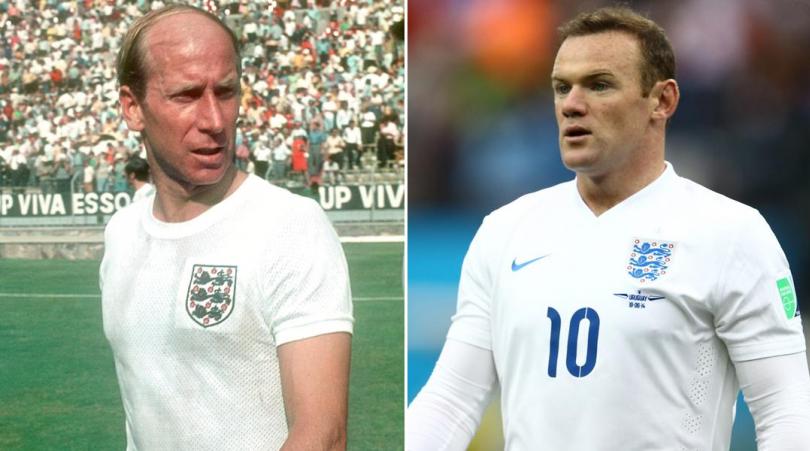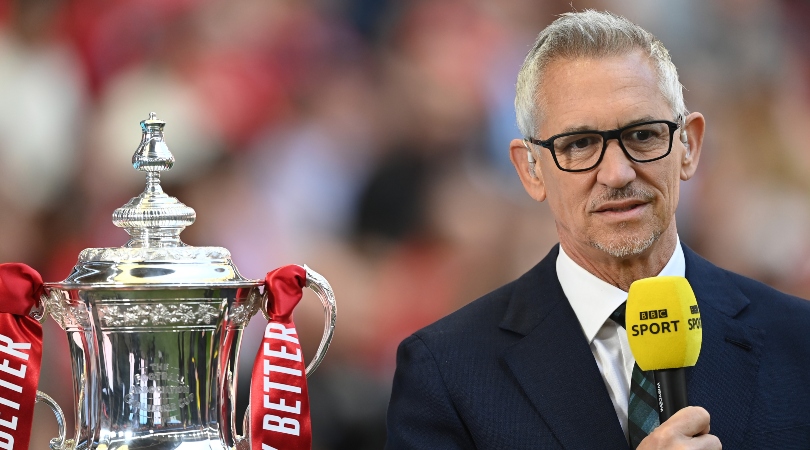Rooney vs Charlton: Whose Manchester United scoring record is better?
With Wazza on the verge of equalling the World Cup winner's long-standing scoring record at Old Trafford, Mike Holden compares the two men where their goals mattered most
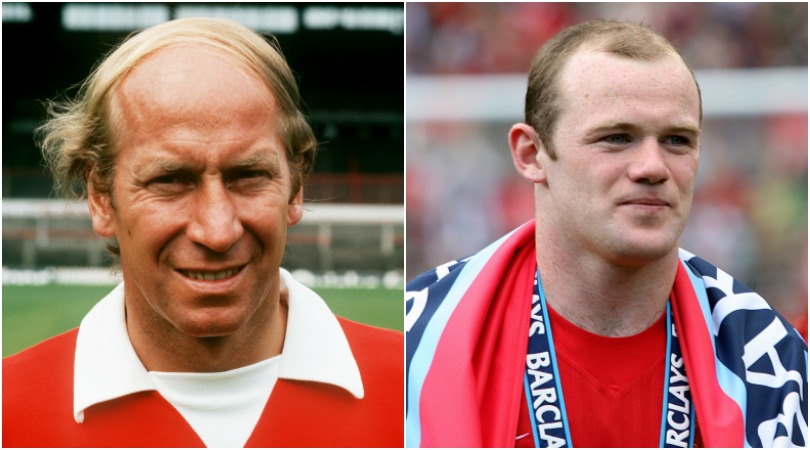
As acceptance of Wayne Rooney’s declining form grows more widespread, the trend for micro-analysing his latest performance has given way to a fresh wave of appreciation for all that he's achieved in his Manchester United career.
For many of his long-standing former colleagues, a large proportion of whom now populate the mainstream media, the suggestion that Rooney’s days might be numbered is an uncomfortable one to bear. Much more palatable is the chance to reflect and see him for the player he was, rather than the player he might have become.
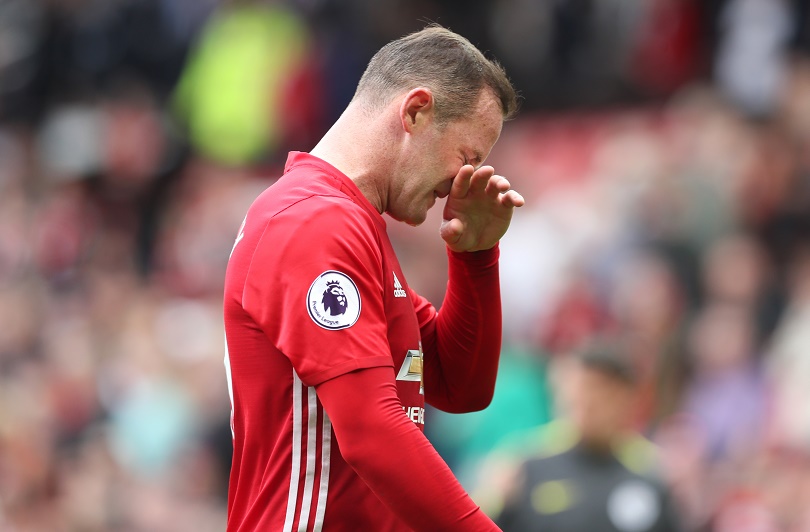
Nobody can say for sure just how long Rooney has left at Old Trafford. Many great players have been written off before, only to then reinvent themselves and return for an Indian summer. However, it’s probably not unreasonable to say – particularly in light of recent off-field incidents – that Rooney might be starting to wrestle with the idea of his own footballing mortality.
No good thing lasts forever, and the United No.10 might soon be inclined to revise his own expectations about being the fulcrum of Jose Mourinho’s team; a player around whom the entire operation revolves.
On the cusp
One more goal and he draws level, on 249, with arguably the club’s most iconic former player
It's just as well, then, that Rooney finds himself on the verge of becoming United’s all-time record goalscorer. What better way to shift the focus from what you can’t do to what you can? By joining the past and present together, and breaking records that will remain his for at least another generation, he has a means of justifying his presence in the immediate future.
In United’s recent Europa League match against Feyenoord, Rooney broke Ruud van Nistelrooy’s record as the club’s all-time leading goalscorer in European competition. And with it, presumably, came a swell of pride at the reaction from the people he respects most. It could serve as motivation for challenges to come.
Get FourFourTwo Newsletter
The best features, fun and footballing quizzes, straight to your inbox every week.
Now the Liverpudlian has Sir Bobby Charlton in his sights. His next target is the big one, and it’s so close: Manchester United’s all-time record goalscorer. Ever. One more goal and he draws level, on 249, with arguably the club’s most iconic former player. Two more, and he’s home and hosed.
But how do Charlton and Rooney really compare? If you trawl through the 497 goals they share with a fine-tooth comb, applying a mixture of both statistical and anecdotal analysis, which player has arrived at their total in more impressive fashion? This is what FourFourTwo has boldly set out to discover…
Next: Domestic matters
1. League record
Wayne Rooney: 380 apps (179 goals); 1 goal every 2.12 games
Bobby Charlton: 606 apps (199 goals); 1 goal every 3.05 games
Charlton played nearly 24,000 more league minutes than Rooney, during which time we might say he bagged (based on his average) 86 goals
Rooney might be on the brink of breaking the all-time record but he remains a monster season short of beating Sir Bobby’s league record. The deficit currently stands at 20 but Charlton, it should be pointed out, had much longer to accumulate his tally.
If destiny were to grant Rooney another four years at Old Trafford – thereby matching Charlton’s 17 campaigns – then he would require an average of only five goals per season to draw level. The respective goal ratios tell the story: Rooney finds the net once every 2.12 games, Charlton once every 3.05 games. And the numbers only lean more heavily towards Rooney when the two players are judged on minutes played.
Not only did Charlton play an extra 226 league matches, but he completed 90 minutes in virtually all of them. The substitute rule only came into play midway through his United career (1965/66) and Charlton was very rarely hooked in any case, while he started on the bench only twice.
Rooney, by contrast, has started as a substitute 35 times and been withdrawn on 74 occasions, not to mention his two red cards. All of which means, in total, Charlton played nearly 24,000 more league minutes than Rooney, during which time we might say he bagged (based on his average) around 86 of his goals. Or from Rooney’s perspective, given the extra minutes, he might be expected to add another 138 to his total.
More to the point, Charlton also played in an era when defences weren’t nearly as disciplined and, statistically, goals were much easier to come by. During the first five years of his career (1956-1961), goals in the old First Division would be scored at a rate of 3.5 per game, compared to just 2.75 in the modern era.
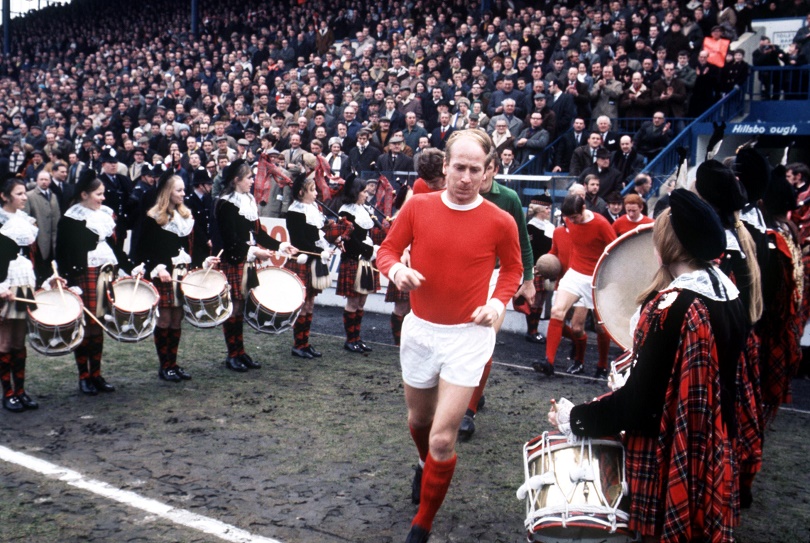
Only in Charlton’s last five seasons at Old Trafford (1968-1973) did the standard rate drop below three goals per game as the influence of Catenaccio began to permeate the English game. And for a World Cup winner in his 30s, the shift was one he struggled to adapt to.
To put it another way, consider that Rooney’s overall tally of 179 represents 19 per cent of all the league goals United have scored since September 2004, whereas Charlton’s haul of 199 was only 14 per cent of his team's total between October 1956 and May 1973.
Verdict: In pure statistical terms, it’s clear cut – Rooney is definitely the more prolific.
2. Domestic cup record
Wayne Rooney: 55 apps (26 goals); 1 goal every 2.12 games
Bobby Charlton: 102 apps (26 goals); 1 goal every 3.92 games
Rooney’s big moments in the League Cup probably put him ahead of Charlton overall
The bare numbers fall in Rooney’s favour but they don’t tell the whole story of two contrasting careers in domestic knockout competition. Both men lost two FA Cup finals in their first three seasons as United players and both have lifted the trophy once, with Rooney finally ending his wait with last season’s extra-time success over Crystal Palace.
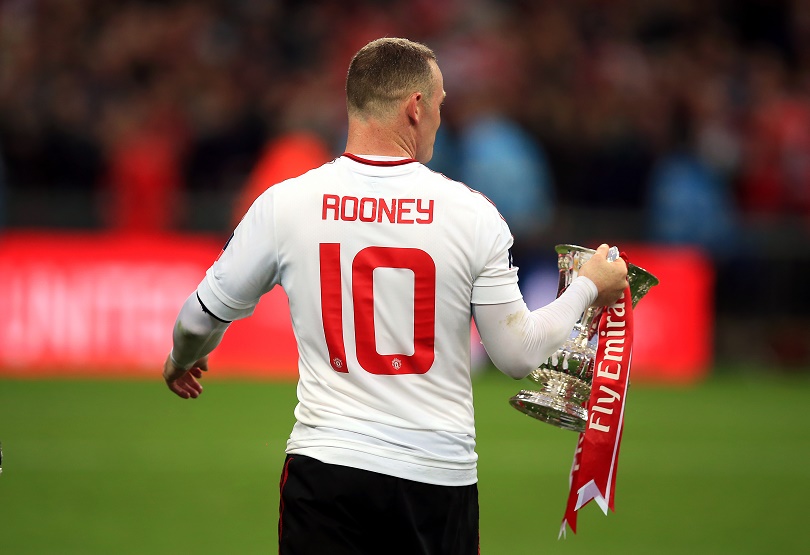
However, an FA Cup highlights reel involving Charlton’s United would definitely be the better watch. The 79-year-old reached the semi-finals in five consecutive seasons between 1962 and 1966 (winning the trophy in 1963); in those days FA Cup semis were huge occasions, often turning into marathon affairs. Charlton played in a dozen semi-final matches (scoring twice) and, replays aside, was victorious in three out of eight.
Rooney, by contrast, has played in only five and never scored in either a semi or a final. However, the overall complexion changes dramatically when the League Cup is brought into the equation: Rooney’s big moments in that competition probably put him ahead of Charlton overall.
The former Everton youngster was still only 20 when he announced his arrival as the man for big occasions with a two-goal salvo in United’s 4-0 Carling Cup success over Wigan at the Millennium Stadium in 2006. Three years later, he lifted the three-handled pot again following a penalty shootout success over Tottenham.
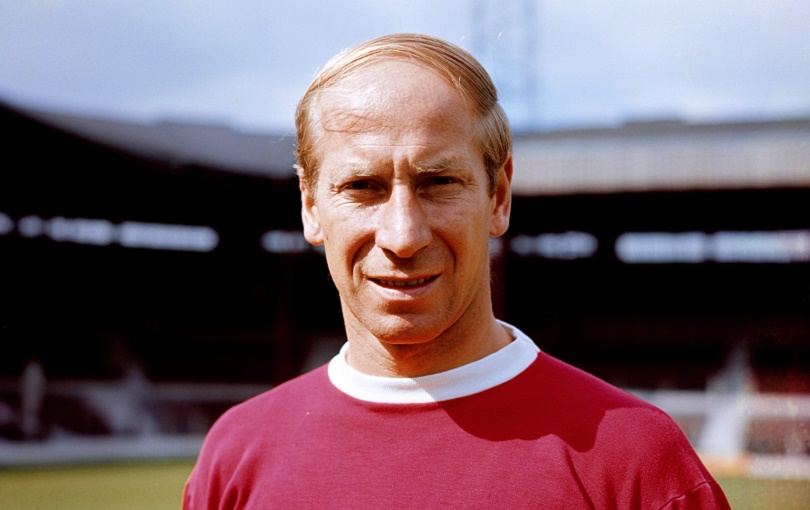
But his biggest contribution to United’s knockout exploits over the past 12 years undoubtedly came the following season, when he scored decisive goals in both the semi-final and final – the former providing United fans with a more iconic image than the latter, arriving as it did on the stroke of 90 minutes at the Stretford End against Manchester City.
During Charlton’s time, the League Cup was still in its infancy and didn’t quite carry the same prestige as it would later do in the 1970s and 1980s. United’s first proper run in the tournament didn’t arrive until 1969/70 when they were beaten in the semi-final by City. Likewise, the return leg was staged at Old Trafford with the Sky Blues holding a 2-1 advantage, but Charlton & Co. could only manage a 2-2 draw in response.
Verdict: For all United’s prominence in the FA Cup throughout the 1960s, Charlton himself seldom made a decisive intervention in those latter stages, which partly explains why the Red Devils were so often nearly men. Rooney’s place in League Cup history is cemented and essentially tips the balance, backing up his superior goalscoring record.
Next: Continental conquerings
3. European record
Wayne Rooney: 95 apps (39 goals); 1 goal every 2.44 games
Bobby Charlton: 45 apps (22 goals); 1 goal every 2.05 games
All we can say is that Charlton’s era was fraught with more uncertainty and the European Cup in its original format left teams with little margin for error
There are striking similarities between the two players when comparing goalscoring records on the continent: Rooney has played roughly twice as many games as Charlton, and scored twice as many goals. However, when you start dealing in fractions, it’s Charlton who edges it. Even with those lost minutes for substitutions, Sir Bobby remains ahead with a goal every 185 minutes compared to Rooney’s rate of one every 201 minutes.
Question marks arise regarding the respective standard of opposition – and these are difficult to answer. Who could honestly quantify the level of difficulty in beating the likes of Vorwarts Berlin, Hibernians of Malta, FK Sarajevo and Gornik Zabrze in the 1960s compared to the modern-day equivalents of AaB Aalborg, CFR Cluj, Otelul Galati and Zorya Luhansk?
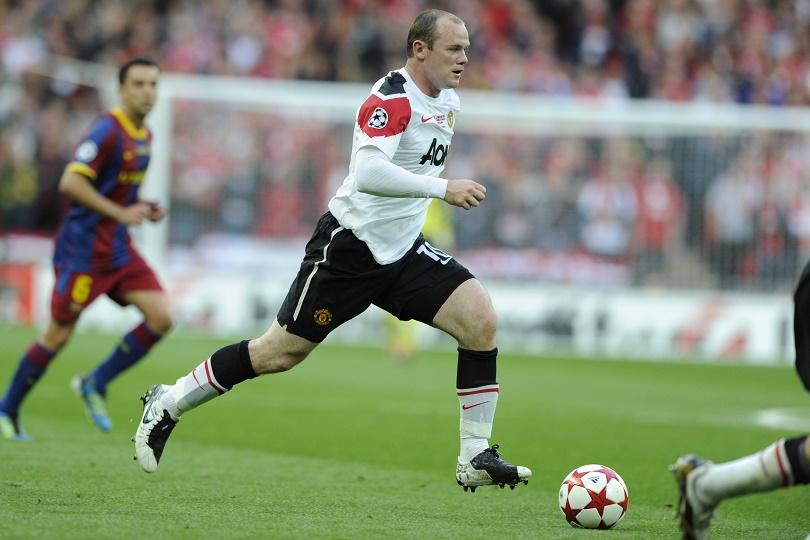
All we can say is that Charlton’s era was fraught with more uncertainty and the European Cup in its original format left teams with little margin for error. Every round was a knockout and there was no video analysis enabling an entourage of backroom staff to conduct forensic analysis on the opposition, making attacking players aware of how best to unhinge their direct rival.
It should be pointed out that fewer than half Charlton’s 22 goals were actually scored in the European Cup, a quirk almost certainly due to circumstance. With United absent from continental competition for five seasons after the Munich air disaster, Charlton was coming into his prime when they returned in September 1963 – as he showed by scoring a dozen goals across two seasons playing in the Cup Winners’ Cup and Inter-Cities Fairs Cup.
However, any suggestion that he was a flat-track bully on the continent would be absurd. In April 1957, at just 19 years old, he scored in a semi-final against Real Madrid at Old Trafford – one of four European Cup semi-finals he would participate in. His crowning glory came more than a decade later with two goals in the 4-1 extra-time win over Benfica in 1968's final.
Rooney has also played in four Champions League semi-finals and emerged victorious from three, as well as winning the competition once when Chelsea were defeated on penalties in Moscow. His greatest contribution on the biggest stage – the equaliser in the 2011 final against Barcelona at Wembley – was ultimately eclipsed by a powerful second-half display from the Catalan giants.
Verdict: There’s only one winner here. On bare numbers alone Charlton’s superiority is only marginal, but from an anecdotal perspective his contribution is far more enthralling.
4. Trophies won
Wayne Rooney: 9 (five league titles, one FA Cup, two League Cups, one European Cup)
Bobby Charlton: 5 (three league titles, one FA Cup, one European Cup)
Tragedy struck in February 1958 and a team that appeared to be on the verge of greatness had to be rebuilt almost from scratch
Rooney's arrival at Old Trafford in August 2004 came roughly two-thirds of the way through the Sir Alex Ferguson era; as such, United were a well-oiled machine, built and conditioned to bend the domestic game to their will. That would arguably have remained the case with or without Rooney, even though he would become the club’s best player over the next decade.
It should have been a similar story for Charlton, who broke through the ranks halfway through Sir Matt Busby’s 24-year tenure. But tragedy struck in February 1958, and a team that appeared to be on the verge of greatness had to be rebuilt almost from scratch, with Busby in charge and Charlton as his most-trusted lieutenant.
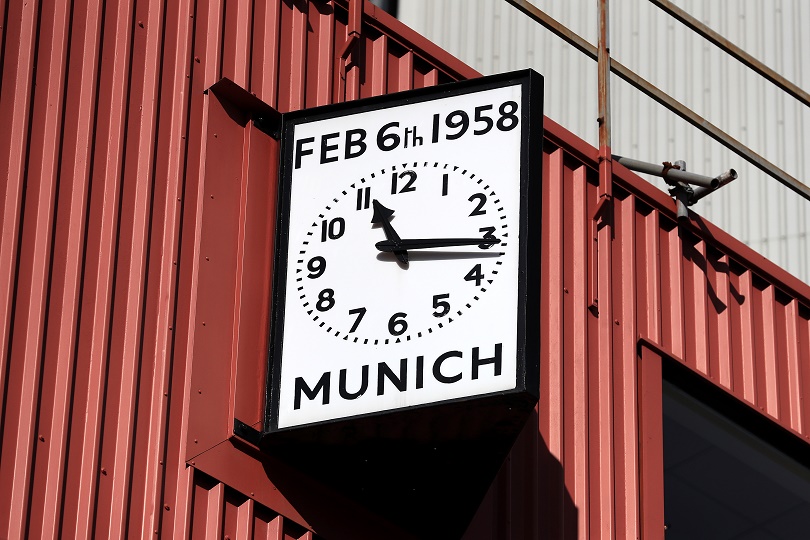
In the wake of the recent Chapecoense tragedy, it should be easier for readers to grasp the enormity of the grieving and rebuilding process United went through in the five years after Munich. And in that context, it should also be possible to rationalise an honours list that, in purely mathematical terms, pitches Rooney as the more successful player. That’s not necessarily the case.
For starters, the League Cup, which accounts for two of Rooney’s haul, warranted little attention for much of Charlton’s United career. Only towards the end of his time at Old Trafford in the late 1960s did it become a competition on a par with the often-maligned but fairly prestigious version we see today. The first Wembley final wasn’t staged until 1967, when Charlton was 29.
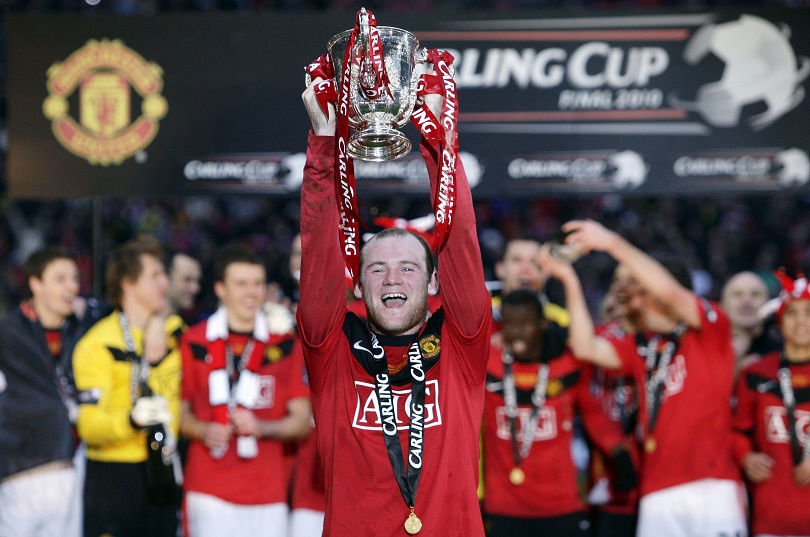
So then we're presented with a revised tally of 7-5 in Rooney’s favour, although it's also worth remembering that four of the younger man’s seven trophies – his first three league titles and the Champions League success of 2008 – were collected in the equivalent period when Charlton was simply trying to come to terms with a harrowing disaster.
Verdict: There’s nothing between them. Neither player really has the edge when it comes to team success, given the respective conditions under which they were operating.
Next: And the winner is...
5. Conclusion
The competitive terrain half a century ago was totally different, back in the days before anybody cottoned on to the idea that football had such business potential
Comparing two players from entirely different eras is fraught with complexities that go way beyond an Excel spreadsheet and the comparative data of 986 matches.
This isn’t just about heavy balls and muddy pitches. The competitive terrain half a century ago was totally different, back in the days before anybody cottoned on to the idea that football had such business potential, especially when you distribute television revenue in such a way that enables the biggest clubs to capitalise and sustain their success.
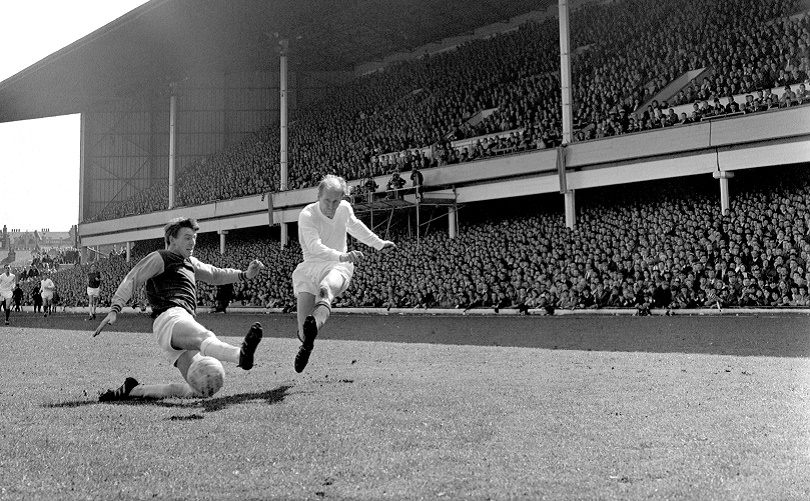
Nonetheless, we can at least put a number on competitive balance using an algorithm, favoured by sports economics professor in the United States, that measures the points distribution of final league tables. According to such a tool, we can speculate that the old First Division was 47 per cent more competitive from top to bottom over the course of Charlton’s career than the Premier League has been since Rooney moved to United.
In purely individual goalscoring terms, Rooney has the better record. He scores one goal every 2.17 games compared to Charlton’s overall return of one goal every 3.04 games. And when you convert those respective figures into an approximation of actual minutes played, the younger man’s supremacy becomes a landslide – a goal every 174 minutes compared to Charlton’s rate of one every 246.
But then you divide one figure by the other and discover that Rooney’s goalscoring ratio is only 41 per cent better in a period where the football might be considered 47 per cent less competitive. Suddenly the waters are muddy again.
Perhaps the best way to sort this one out is over a pint.
New features you'd like every day on FourFourTwo.com • More Manchester United
